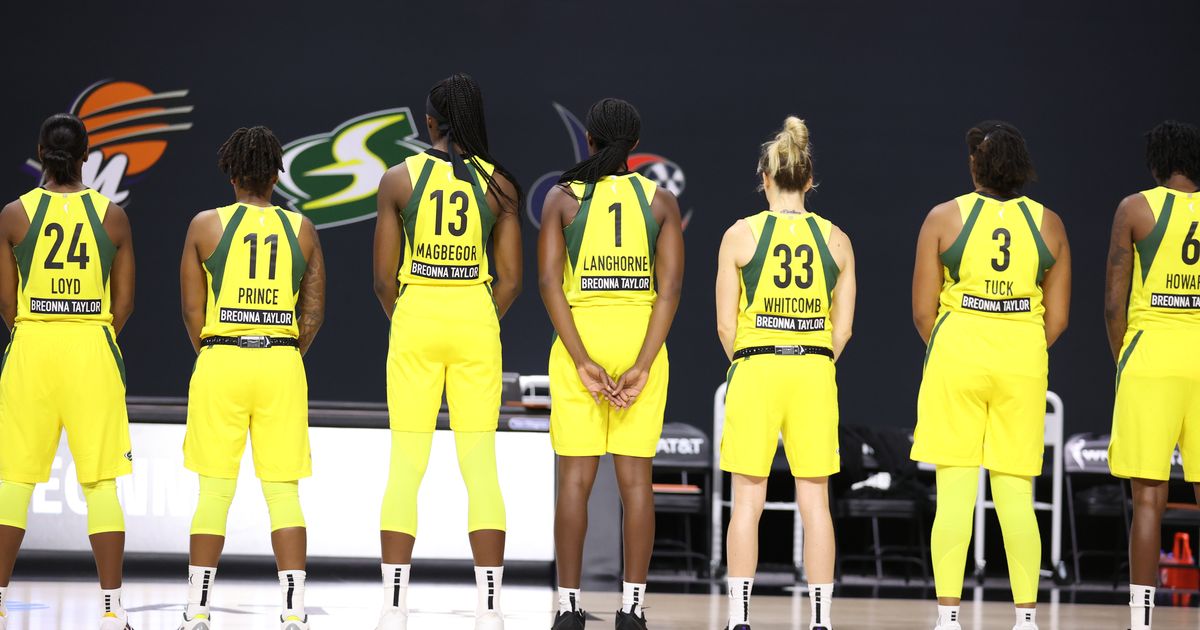
On Saturday, the WNBA kicked off their season with a tribute to Breonna Taylor, the 26-year-old Black woman killed by police in March. Not only did the two participating teams, the New York Liberty and Seattle Storm, honor Taylor, but the entire WNBA season is dedicated to the deceased EMT as well as the Say Her Name campaign, which is dedicated to raising awareness of Black women who were victims of police brutality and racial injustice.
Before the start of the game, players Layshia Clarendon of the Liberty and Breanna Stewart of the Storm took the stage to speak about this initiative. Clarendon and Stewart are two leaders of the league’s new Social Justice Council.
“We are dedicating this season to Breonna Taylor, an outstanding EMT who was murdered over 130 days ago in her home,” said Clarendon. “Breonna Taylor was dedicated and committed to uplifting everyone around her.”
“We are also dedicating this season to Say Her Name campaign,” she continued, “a campaign committed to saying the names and fighting for justice for Black women, Black women who are so often forgotten in this fight for justice, who do not have people marching in the streets for them. We will say her name.”
Clarendon then said the names of four Black women killed by police: Sandra Bland, Atatiana Jefferson, Dominique ‘Rem’mie’ Fells, and Breonna Taylor. “We will be a voice for the voiceless,” she said.
Stewart then announced a 26-second moment of silence, as Taylor was 26 years old. After that, both teams walked out as the national anthem played:
The Liberty and the Storm wore jerseys that display Taylor’s name. According to the league’s announcement, the WNBA will wear warm-up shirts that say “Black Lives Matter” and “Say Her Name” throughout the season. “Black Lives Matter” will also feature prominently on the court.
The initiative isn’t new for the WNBA, which has participated in protests throughout the years — since, as The Guardian put it, “before it was cool.” WNBPA President Nneka Ogwumike said in the announcement, “As many WNBA players — past and present — have said and, more importantly, consistently demonstrated, the reason why you see us engaging and leading the charge when it comes to social advocacy is because it is in our DNA.”
